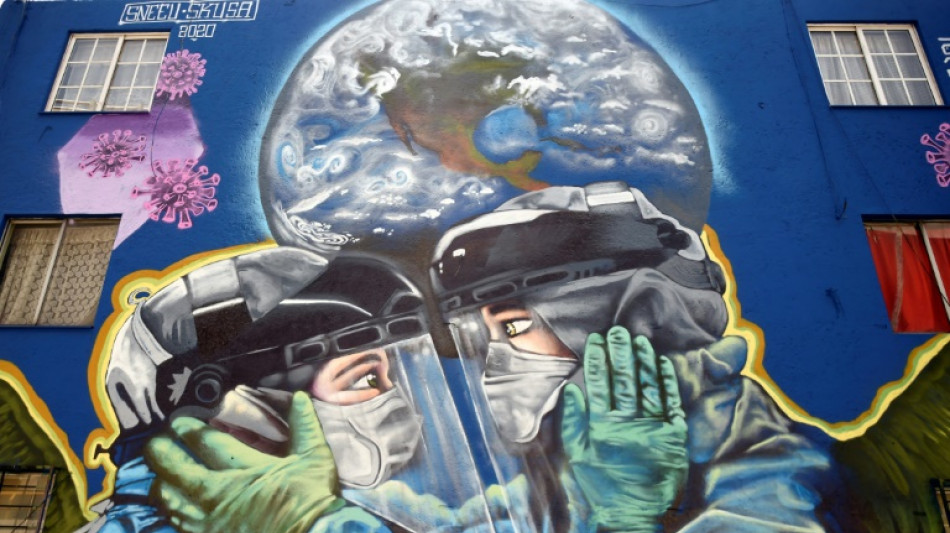
-
 Cycling fan admits throwing bottle at Van der Poel was 'stupid'
Cycling fan admits throwing bottle at Van der Poel was 'stupid'
-
Troubled Red Bull search for path back to fast lane

-
 China's forecast-beating growth belies storm clouds ahead: analysts
China's forecast-beating growth belies storm clouds ahead: analysts
-
ASML CEO sees growing economic 'uncertainty' from tariffs

-
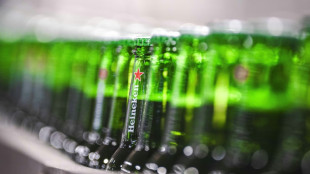 Heineken beer sales dip, tariffs add to uncertainty
Heineken beer sales dip, tariffs add to uncertainty
-
Rehab centre for Russian veterans from Ukraine fills up
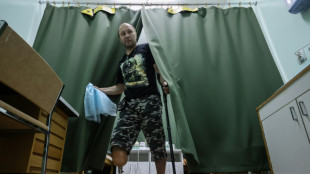
-
 Dutch flower industry grasps thorny pesticide issue
Dutch flower industry grasps thorny pesticide issue
-
Solar boom counters power shortages in Niger

-
 Malnourished children in Afghanistan at 'high risk of dying' without US aid
Malnourished children in Afghanistan at 'high risk of dying' without US aid
-
Skating comeback queen Liu says she can get even better for Olympics

-
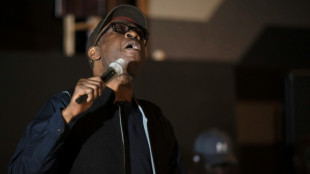 'Let's rock': world music icon Youssou N'Dour back on the road
'Let's rock': world music icon Youssou N'Dour back on the road
-
Mackerel and missiles: EU-UK defence deal snags on fish

-
 Istanbul's Hagia Sophia prepares for next big quake
Istanbul's Hagia Sophia prepares for next big quake
-
'Magician' Chahal casts spell with IPL heroics

-
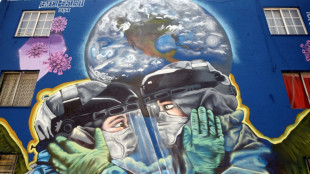 WHO countries strike landmark agreement on tackling future pandemics
WHO countries strike landmark agreement on tackling future pandemics
-
Kerr salutes Harvard defiance over Trump after Warriors win

-
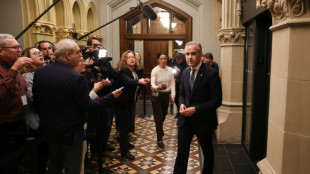 Canada party leaders hold high-stakes debate two weeks from vote
Canada party leaders hold high-stakes debate two weeks from vote
-
As war grinds on, Ukraine's seniors suffer

-
 ASML CEO sees 'increased macro uncertainty' from tariffs
ASML CEO sees 'increased macro uncertainty' from tariffs
-
Pope leaves faithful guessing over Easter appearances

-
 Butler, 'Batman' Curry shine as Warriors down Grizzlies to reach playoffs
Butler, 'Batman' Curry shine as Warriors down Grizzlies to reach playoffs
-
Skating 'Quad God' Malinin ready for Olympic favourite tag

-
 Toppmoeller has ascendant Frankfurt challenging their limits
Toppmoeller has ascendant Frankfurt challenging their limits
-
Cambodia's Chinese casino city bets big on Beijing

-
 Vespa love affair: Indonesians turn vintage scooters electric
Vespa love affair: Indonesians turn vintage scooters electric
-
Europe seeks to break its US tech addiction
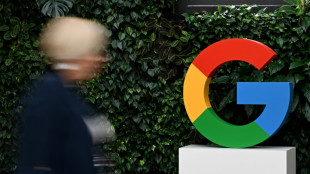
-
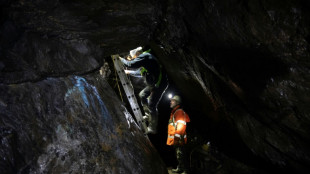 Long-abandoned Welsh mine revived as gold prices soar
Long-abandoned Welsh mine revived as gold prices soar
-
UK's top court to rule on how to define a 'woman'

-
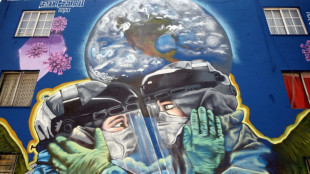 WHO countries reach landmark agreement on tackling future pandemics
WHO countries reach landmark agreement on tackling future pandemics
-
Stocks struggle again as Nvidia chip curb warning pops calm

-
 China's economy beats forecasts ahead of Trump's 'Liberation Day'
China's economy beats forecasts ahead of Trump's 'Liberation Day'
-
China's economy beat forecasts in first quarter ahead of Trump's 'Liberation Day'
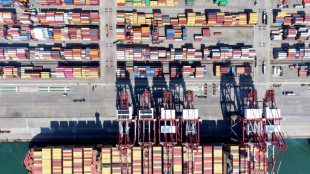
-
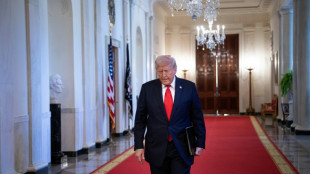 Trump orders critical minerals probe that may bring new tariffs
Trump orders critical minerals probe that may bring new tariffs
-
Onana faces date with destiny as Man Utd chase Lyon win

-
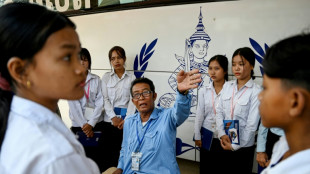 Lessons in horror with Cambodia's Khmer Rouge tribunal
Lessons in horror with Cambodia's Khmer Rouge tribunal
-
Pandemic agreement: key points
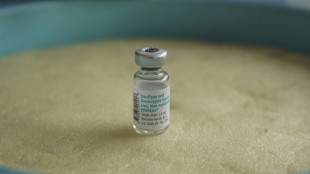
-
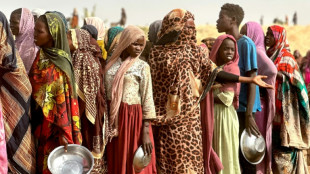 Paramilitaries declare rival government as Sudan war hits two-year mark
Paramilitaries declare rival government as Sudan war hits two-year mark
-
Landmark agreement reached at WHO over tackling future pandemics
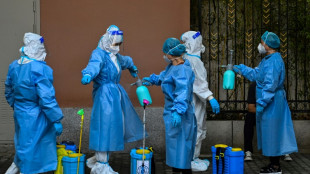
-
 'La bolita,' Cuban lottery offering hope in tough times
'La bolita,' Cuban lottery offering hope in tough times
-
'Toxic beauty': Rise of 'looksmaxxing' influencers
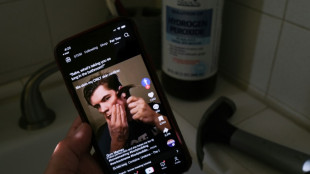
-
 Facebook added 'value' to Instagram, Zuckerberg tells antitrust trial
Facebook added 'value' to Instagram, Zuckerberg tells antitrust trial
-
Beyond Creatinine: First Real-World Evidence Highlights Proenkephalin A 119–159 (penKid) as a Valuable Kidney Function Biomarker
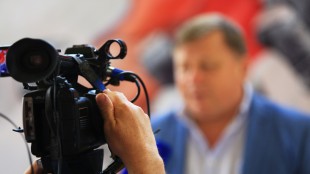
-
 Helium One Global Ltd Announces Jackson-27 Spud at Galactica Project
Helium One Global Ltd Announces Jackson-27 Spud at Galactica Project
-
Tocvan Core Drilling Extends Main Zone, 70 meters South Returns 7.2 g/t Gold and 80 g/t Silver Over 2.6 meters within 46.9 meters of 0.5 g/t Gold

-
 Supplement Manufacturing Partner, Inc. Issues Recall on Dorado Nutrition Brand Spermidine Supplement 10mg Vegetable Capsules (Spermidine 3HCL) Due To Undeclared Wheat Allergen
Supplement Manufacturing Partner, Inc. Issues Recall on Dorado Nutrition Brand Spermidine Supplement 10mg Vegetable Capsules (Spermidine 3HCL) Due To Undeclared Wheat Allergen
-
Trump signs order aimed at lowering drug prices
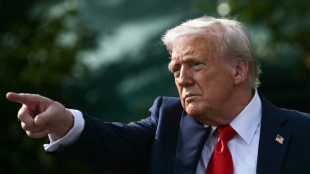
-
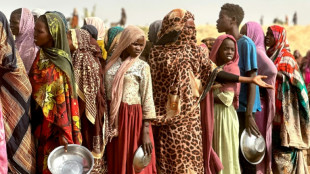 Paramilitaries declare rival government as Sudan war enters third year
Paramilitaries declare rival government as Sudan war enters third year
-
Nvidia expects $5.5 bn hit as US targets chips sent to China

-
 Emery targets 'next step' for Aston Villa after Champions League heroics
Emery targets 'next step' for Aston Villa after Champions League heroics
-
'Gap too big' for Dortmund after first leg, says Guirassy


WHO countries reach landmark agreement on tackling future pandemics
Years of negotiations culminated early Wednesday with countries agreeing the text of a landmark accord on how to tackle future pandemics, aimed at avoiding a repeat of the mistakes made during the Covid-19 crisis.
After more than three years of talks and one last marathon session, weary delegates at the World Health Organization's headquarters sealed the deal at around 2:00 am (0000 GMT) Wednesday.
"Tonight marks a significant milestone in our shared journey towards a safer world," WHO chief Tedros Adhanom Ghebreyesus said.
"The nations of the world made history in Geneva today."
Five years after Covid-19 killed millions of people and devastated economies, a growing sense of urgency hung over the talks, with new health threats lurking, ranging from H5N1 bird flu to measles, mpox and Ebola.
The final stretch of negotiations also took place with cuts to US foreign aid spending and threatened tariffs on pharmaceuticals casting a shadow over the talks.
- 'It's adopted' -
Right until the last minute, disagreement had lingered over a few thorny issues.
Negotiators stumbled over the agreement's Article 11, which deals with transferring technology for pandemic health products towards developing nations.
During the Covid-19 pandemic, poorer states accused rich countries of hoarding vaccines and tests.
Countries with large pharmaceutical industries have strenuously opposed the idea of mandatory tech transfers, insisting they must be voluntary.
But it appeared the obstacle could be overcome by adding that any transfer needed to be "mutually agreed".
The core the agreement is a proposed Pathogen Access and Benefit-Sharing System (PABS), aimed at allowing the swift sharing of pathogen data with pharmaceutical companies, enabling them to quickly start working on pandemic-fighting products.
In the end, the 32-page agreement was entirely highlighted in green, indicating it had been fully approved by WHO member states.
"It's adopted," negotiations co-chair Anne-Claire Amprou announced, to thundering applause.
"In drafting this historic agreement, the countries of the world have demonstrated their shared commitment to preventing and protecting everyone, everywhere, from future pandemic threats."
The finalised text will now be presented for sign-off at the WHO's annual assembly next month.
- 'More equity' -
As intense talks in corridors and closed rooms drew towards an end late on Tuesday, Tedros joined the negotiations, telling reporters he thought the current draft was "balanced", and that a deal would bring "more equity".
While taking measures to coordinate pandemic prevention, preparedness and response could be costly, "the cost of inaction is much bigger", he insisted.
"Virus is the worst enemy. (It) could be worse than a war."
The United States, which has thrown the global health system into crisis by slashing foreign aid spending, was not present.
US President Donald Trump ordered a withdrawal from the United Nations' health agency and from the pandemic agreement talks after taking office in January.
However, the US absence, and Trump's threat to slap steep tariffs on pharmaceutical products, still hung over the talks, making manufacturers and governments more jittery.
But in the end, countries reached consensus.
Many saw the approval of the text as a victory for global cooperation.
"At a time when multilateralism is under threat, WHO member states have joined together to say that we will defeat the next pandemic threat in the only way possible: by working together," said former New Zealand prime minister Helen Clark, co-chair of the Independent Panel for Pandemic Preparedness and Response.
As the congratulatory speeches continued on towards daybreak, Eswatini's representative stressed that "whilst we celebrate this moment, we need not rest on our laurels".
"The real work begins now."
S.F.Warren--AMWN